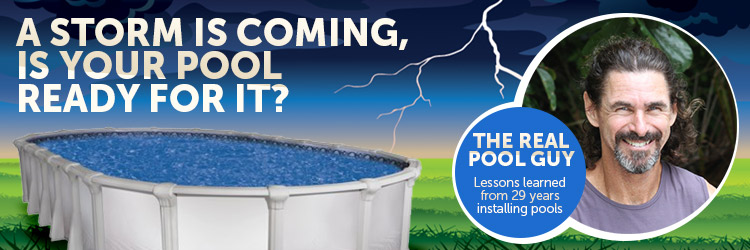If you have an above ground pool, you may be wondering how many hours a day it should be running to keep it clean and well-maintained. The answer to this question can vary depending on various factors such as the size of your pool, the climate you live in, and the usage frequency. In this article, we will explore the recommended daily running time for above ground pools, helping you keep your pool sparkling and enjoyable all summer long. So let’s dive in and find out the optimal hours to keep your above ground pool running!
This image is property of images.pexels.com.
Factors to Consider
When determining how many hours a day your above ground pool should run, there are several factors to consider. These factors include the size and volume of the pool, pool usage, water temperature, location and climate, filtration system, chemical balance, time of year, and pool cover usage. Each of these factors plays a role in determining the optimal runtime for your pool.
Size and Volume of the Pool
The size and volume of your above ground pool will greatly influence the required runtime. Determining the size and volume of your pool is relatively simple. Measure the length, width, and depth of your pool, and multiply these measurements together. This will give you the volume of your pool in cubic feet.
The larger the pool, the longer it will take for the water to circulate properly. For larger pools, it is recommended to run the pool pump for at least 8-10 hours a day. This ensures that all the water is properly filtered and circulated, keeping it clean and clear.
Pool Usage
The frequency and duration of pool use is another important factor to consider when determining the runtime. If your pool is heavily used, you may need to run the pump for longer periods to maintain proper water circulation and filtration.
If your pool is used infrequently or only for short durations, you may be able to reduce the runtime. However, it is still important to ensure that the water is adequately filtered and circulated, even during periods of low usage.
Water Temperature
The water temperature of your pool can also impact the runtime decision. Warmer water tends to promote the growth of algae and bacteria, so it may be necessary to run the pump for longer periods to maintain water clarity and sanitation.
On the other hand, colder water requires less filtration and circulation. If you live in a colder climate or close your pool during the winter months, you may be able to reduce the runtime during those periods.
This image is property of images.pexels.com.
Location and Climate
The location and climate of your area can have a significant impact on the pool pump runtime. Several variables should be considered, such as humidity and heat, sunlight exposure, wind and dust, and winter freezing temperatures.
In areas with high humidity and heat, the pool pump may need to run longer to prevent algae growth and maintain proper water chemistry. Sunlight exposure can also affect the pool’s runtime as direct sunlight can increase the rate of evaporation and introduce more debris into the pool.
Wind and dust can contribute to the pool’s overall cleanliness and can impact the filtration system. If your pool is located in an area with high winds or frequent dust storms, it may be necessary to run the pump for longer periods to combat these effects.
In colder climates, freezing temperatures can cause significant damage to the pool and its equipment. It is important to adjust the runtime during the winter months to prevent freezing and other related issues.
Consider all of these variables when calculating the optimal runtime for your pool.
Filtration System
The type and efficiency of your pool’s filtration system are crucial in determining the runtime. Different filtration systems have varying flow rates and capacities, which can affect the overall runtime required.
It is essential to follow the manufacturer’s recommendations regarding the runtime for your specific filtration system. These recommendations are often based on the flow rate and capacity of the system, ensuring that the water is properly filtered and circulated.
Regular maintenance and cleaning of the filtration system are also important. Clogged filters can reduce the system’s efficiency and require longer runtimes to achieve the desired water quality.
This image is property of images.pexels.com.
Chemical Balance
Maintaining the proper chemical balance in your pool is vital for water clarity and sanitation. The sanitizer levels, such as chlorine, and the pH levels should be regularly monitored and adjusted as needed.
The chemical balance of the pool can also affect the overall runtime. If the sanitizer levels are low or the pH levels are imbalanced, it may be necessary to run the pump for longer periods to ensure proper water treatment. Conversely, if the chemical balance is maintained consistently, the runtime can potentially be reduced.
Consulting a pool professional or utilizing a water testing kit can help determine the appropriate chemical levels and guide you in adjusting the runtime accordingly.
Time of Year
The time of year can influence the optimal runtime for your pool. High season and low season periods may require different runtime considerations due to varying usage patterns and weather conditions.
During high season periods, such as summer, when the pool is heavily used and temperatures are high, it is recommended to run the pump for longer periods. This helps to maintain water quality, clarity, and freshness, reducing the risk of algae growth.
In low season periods, when the pool usage decreases or the weather is cooler, the runtime can potentially be reduced. However, it is still important to maintain proper water filtration and circulation to prevent any potential issues that may arise.
Adjusting the runtime according to the specific period and its associated factors can help optimize pool maintenance while saving on energy costs.
Pool Cover Usage
Using a pool cover can provide several benefits, including increasing energy efficiency and reducing debris and evaporation. The usage of a pool cover can also impact the pool pump’s runtime.
When the pool is covered, less debris enters the water, reducing the strain on the filtration system. This allows for potentially shorter pump runtimes, as the water remains cleaner for longer periods.
Pool covers can also help to retain heat, which is especially useful in cooler climates or during colder seasons. By retaining heat, the pool cover reduces the energy required to heat the water, potentially reducing the overall pump runtime.
Considering the use of a pool cover and incorporating it into the runtime calculation can provide increased efficiency while saving on energy costs.
Experimentation and Monitoring
Determining the optimal runtime for your above ground pool may involve some trial and error. Factors such as pool size, usage patterns, climate, and water chemistry can vary from one pool to another.
It is recommended to initially start with a baseline runtime and monitor the water quality and clarity over a period of time. If the water remains clean and balanced, the runtime may be adjusted accordingly to potentially reduce energy consumption.
Regular monitoring of the pool’s water quality, equipment performance, and overall cleanliness is crucial. By keeping track of any changes or issues that arise, you can make adjustments to the runtime as necessary to ensure optimal pool maintenance.
By considering all of these factors, experimenting with runtime, and monitoring the pool consistently, you can find the perfect balance for your above ground pool’s runtime, ensuring clean and clear water while maximizing energy efficiency.






